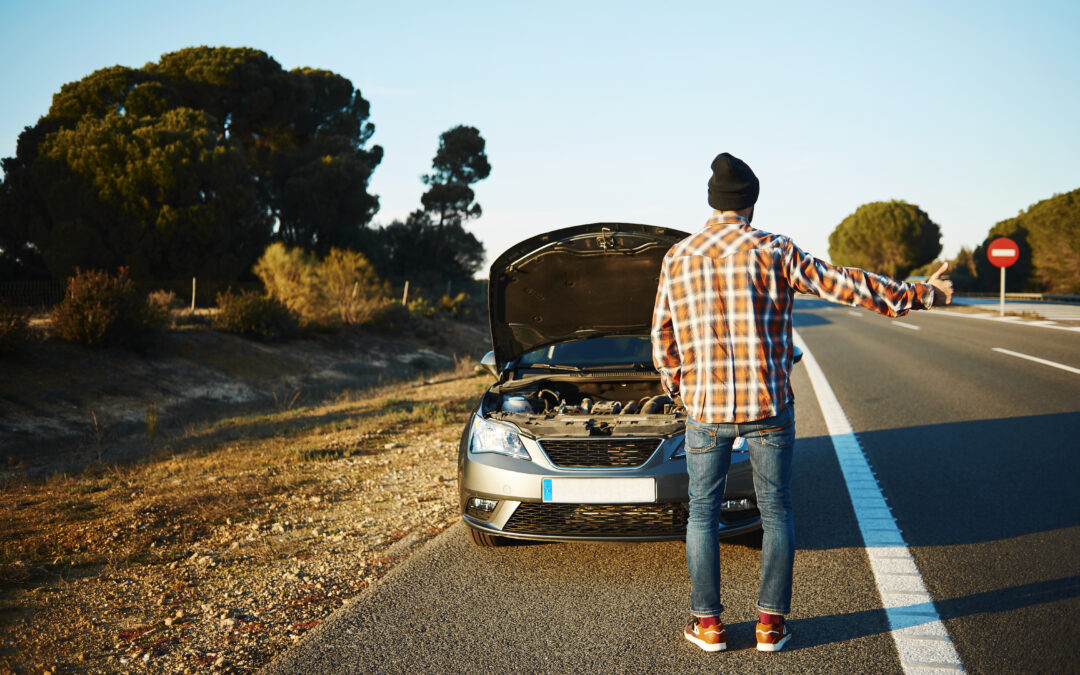John had no idea what went wrong. One moment, his car was running fine; the next, it sputtered and died in the middle of the road. He lifted the hood with hope and zero knowledge expecting to spot something obvious, but all he saw were wires, pipes, and a whole lot of confusion. With cars honking behind him and sweat dripping down his back, he realized he had no clue what to do. A frantic call to a roadside mechanic later, he braced himself for whatever expensive fix was coming his way. If only he had known the warning signs earlier.
Car breakdowns are not only frustrating but can also leave you at the mercy of dishonest mechanics, as many Nigerian car owners have experienced. According to a Premium Times report, some mechanics take advantage of unsuspecting drivers by misdiagnosing issues, overcharging for repairs, or even siphoning fuel. Avoiding sudden breakdowns is not just about convenience, it’s about protecting yourself from unnecessary expenses and potential scams. but can also ruin your plans when you least expect them. Whether you’re rushing for an important meeting or heading out for a celebration, an unexpected car failure can be a nightmare. In this article, we’ll break down the seven most common reasons your car might break down suddenly and how to prevent them.
1. Dead or Weak Battery
Your car battery is the heart of your vehicle’s electrical system. If it fails, your car won’t start, leaving you stranded.
Why It Happens:
A dead or weak battery is one of the most common reasons cars fail to start. This issue can be caused by:
- Leaving your lights, radio, or other electronics on when the engine is off, draining the battery over time.
- An aging or corroded battery, which loses efficiency and struggles to hold a charge.
- Extreme weather conditions excessive heat can cause battery fluid to evaporate, while cold temperatures can slow down the chemical reactions within the battery.
- A faulty alternator that fails to recharge the battery while you drive, gradually leading to a drained battery.
How to Avoid It:
- Regularly inspect your battery for corrosion and clean the terminals if necessary.
- According to the AAA, car batteries typically last 3-5 years, but in extreme heat or cold, they may need replacement every 2-3 years to maintain optimal performance. Regular testing and maintenance can help prevent unexpected failures.
- Ensure your alternator is functioning properly by having it checked at routine maintenance intervals.
- Carry a portable jump starter in your car for emergencies it can save you from being stranded.
- If you notice dim headlights or slow engine cranking, get your battery checked immediately.
If you’re uncertain about the price or quality of a replacement battery, you can check options from trusted brands on Everything Motors, which provides a variety of reliable batteries for different car models.
2. Overheating Engine
Nothing is worse than watching your temperature gauge hit the red zone while stuck in Lagos traffic.
Why It Happens:
An overheating engine is a serious issue that can cause severe damage. Common causes include:
- Low coolant levels, preventing the engine from staying cool.
- A faulty thermostat that fails to regulate engine temperature properly.
- Radiator issues, such as leaks or blockages, reducing cooling efficiency.
- A broken water pump that fails to circulate coolant through the engine.
How to Avoid It:
- Always check coolant levels before long drives and top up when necessary.
- Flush and refill coolant according to your car manufacturer’s recommendation.
- Inspect the radiator and hoses for leaks and ensure proper airflow.
- Pay attention to warning lights and avoid driving if your engine is overheating.
If your engine overheats, EverythingMotors can help find a mechanic to assess and address the issue promptly.
3. Alternator Failure
Your alternator keeps your car’s battery charged and powers essential components. When it fails, you might notice dim headlights or flickering dashboard lights.
Why It Happens:
- Worn-out alternator belts can lead to inefficient power transfer.
- Loose or corroded battery terminals interfere with proper charging.
- Electrical short circuits can damage the alternator over time.
How to Avoid It:
- Get your alternator checked every 12 months or if you notice signs like dim lights or battery warning indicators.
- Listen for whining or grinding noises, which might indicate alternator trouble.
- Regularly test battery voltage to ensure the alternator is functioning properly.
Read more on 8 Warning Signs of a Failing Alternator
4. Fuel Problems
Ever noticed your full tank mysteriously reducing after a visit to the mechanic? You’re not alone! Many Nigerian car owners have shared experiences of mechanics siphoning fuel or misdiagnosing fuel-related issues.
Why It Happens:
- Contaminated fuel from unregulated or poorly maintained fuel stations can clog injectors and damage the fuel pump.
- A faulty fuel pump or clogged fuel filter can restrict fuel flow to the engine.
- Dishonest mechanics may siphon fuel or tamper with your fuel gauge readings.
How to Avoid It:
- Buy fuel only from reputable stations and avoid filling up during fuel tanker deliveries (which can stir up contaminants in storage tanks).
- Use fuel additives to clean injectors and improve fuel efficiency.
- Check your fuel pump function regularly to avoid unexpected failures.
- Always note your fuel level before taking your car to a mechanic and ensure you retrieve your car with the same amount of fuel.
- Consider switching to CNG, which is cheaper than petrol and offers long-term savings. Learn more about CNG vs Petrol Cars in Nigeria
5. Flat or Burst Tires
Hitting a pothole at high speed can result in a loud and unsettling boom, often followed by an unsteady ride or even a flat tire. The impact can damage your suspension, wheels, or alignment, making immediate inspection crucial.
Why It Happens:
- Low tire pressure can cause uneven wear and increase the risk of a blowout.
- Worn-out treads reduce grip and make tires more vulnerable to punctures.
- Sharp objects on Nigerian roads, such as nails and broken glass, can easily puncture tires.
How to Avoid It:
- Always check tire pressure before driving to ensure it matches the recommended PSI.
- Replace old or worn-out tires before they become a hazard.
- Rotate tires every 5,000 – 10,000 km to ensure even wear and extend their lifespan.
6. Faulty Starter Motor
If you turn the key and only hear a clicking sound, your starter motor could be the problem. A faulty starter motor can leave you stranded, and if it’s not addressed, it can escalate into a bigger issue.
Why It Happens:
- Weak or dead battery can affect the starter motor’s performance. Corroded connections between the battery and the motor can disrupt the electrical flow, causing starting problems.
- The starter motor itself can wear down over time, particularly with high-mileage vehicles. This can lead to difficulty starting the car or a complete failure of the motor to engage.
- If your ignition switch is faulty, it may not send the right signals to the starter motor, preventing the engine from turning over. This can often be a silent issue until it becomes a major inconvenience.
How to Avoid It:
- Get your starter motor checked during your routine car servicing. This will help identify potential issues before they turn into a major breakdown.
- Listen for grinding or clicking noises when starting the car. This could indicate the starter motor is struggling to engage. If you notice this, don’t delay in getting it checked.
- Ensure that your battery is in good health and that all connections are clean and secure. This can go a long way in preventing starter motor failure.
- Have your ignition switch checked if you’re experiencing intermittent starting issues. Replacing a worn switch early can prevent starter motor damage.
If you’re unsure about the condition of your starter motor, don’t hesitate to visit a trusted mechanic for a thorough inspection.
7. Transmission Failure
If your car struggles to shift gears, you may be dealing with transmission issues.
Why It Happens:
- Low transmission fluid can cause gears to slip.
- Delayed servicing leads to wear and tear on transmission components.
- Overheating can cause transmission fluid to degrade.
How to Avoid It:
- Regularly change transmission fluid per manufacturer recommendations.
- Avoid aggressive driving and sudden gear shifts.
- Get transmission serviced every 50,000 km.
Final Thoughts: Prevention is Better Than Repair
Taking proactive steps can save you from unnecessary expenses and frustrating breakdowns. Everything Motors is here to make car maintenance easier for you. We connect you with trusted mechanics in Lagos, Port Harcourt, and Asaba, offering reliable and affordable services. Whether you need an alternator check, a new battery, or other parts, Everything Motors also provides the best prices and expert service.
Don’t wait for your car to break down. Simply fill out the contact form here to get started and connect with a reliable mechanic near you.


